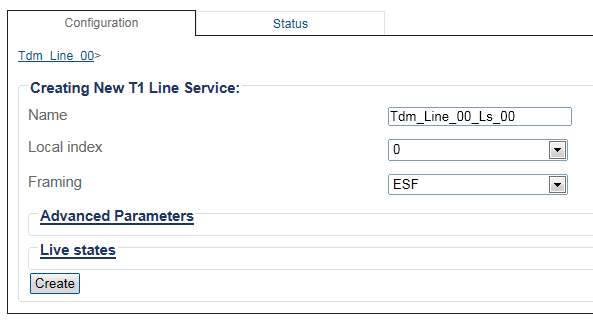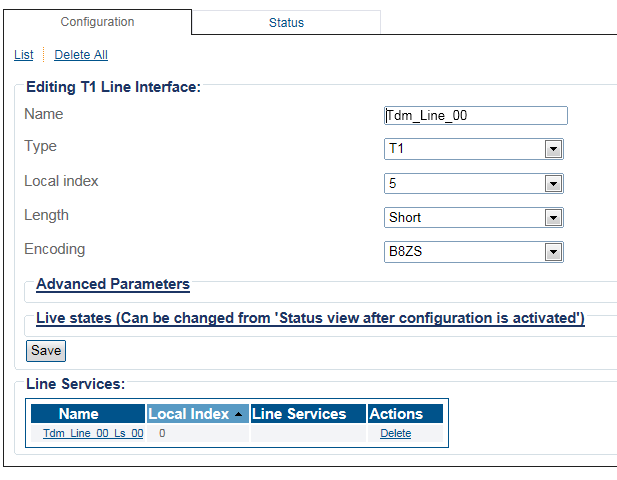Toolpack:Creating a Line Service C
From TBwiki
(Difference between revisions)
(→Applies to version(s): v2.8.) |
(→Applies to version(s): v2.8.) |
||
| Line 19: | Line 19: | ||
| − | 3- Create the new | + | 3- Create the new Line Service: |
* Enter a '''name''' for the new line | * Enter a '''name''' for the new line | ||
| + | * Select a lines service '''type''' | ||
* Select an available '''local index''', from the drop-down box | * Select an available '''local index''', from the drop-down box | ||
* Select appropriate '''framing''' and '''loopback''' modes | * Select appropriate '''framing''' and '''loopback''' modes | ||
| Line 29: | Line 30: | ||
| − | 5- The new line service | + | 5- The new line service is displayed in the '''Line Services''' list |
[[Image:CreateLineService_3.png]] | [[Image:CreateLineService_3.png]] | ||
Revision as of 08:57, 25 August 2014
Applies to version(s): v2.8.
A line service defines the type of paylaod that a line interface carries or it defines another line service. The definition of a ine service ends when it reaches the E1/J1/T1 line service.
The E1/J1/T1 line services are also known as trunks or spans.
To create a new line service:
1- Select TDM Line Interfaces from the navigation panel
2- Select the line interface for which you would like to create a line service.
3- Create the new Line Service:
- Enter a name for the new line
- Select a lines service type
- Select an available local index, from the drop-down box
- Select appropriate framing and loopback modes
- Click Create
5- The new line service is displayed in the Line Services list



